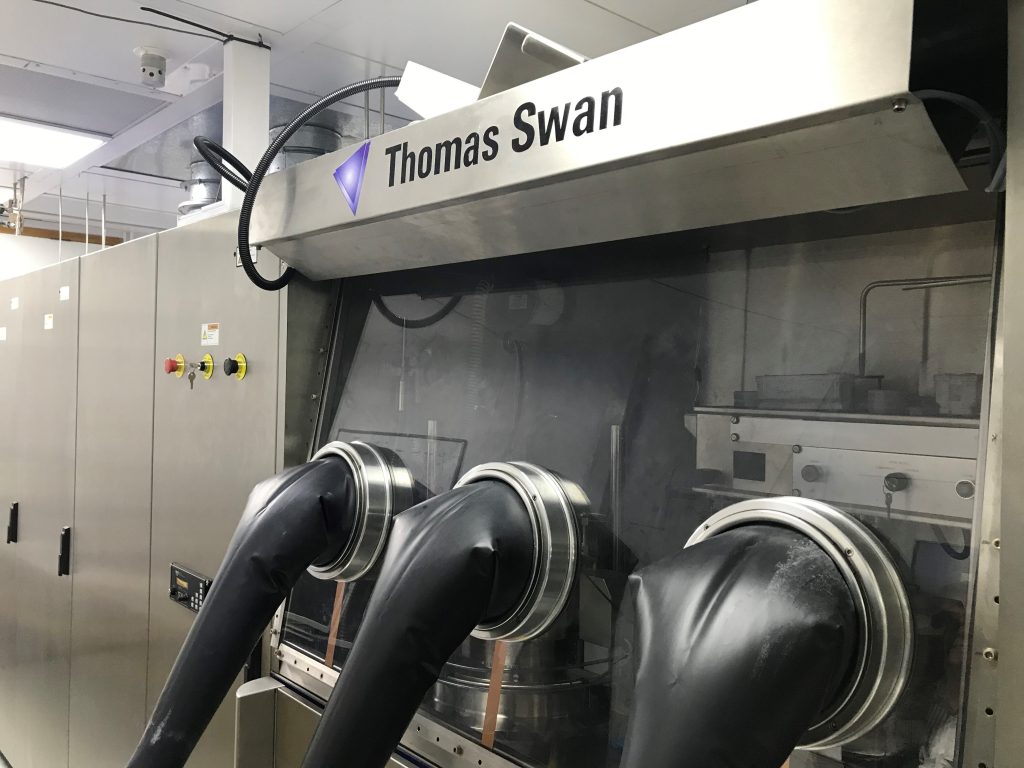Kubos Semiconductors and Compound Semiconductor Centre announce collaboration
Cambridge and Cardiff UK, October 1st, 2019: Kubos Semiconductors Ltd and The Compound Semiconductor Centre (CSC) have signed a Memorandum of Understanding to pursue the commercialisation of cubic Gallium Nitride (GaN) epitaxial technology for high efficiency, LED lighting applications. The agreement will accelerate the development of Kubos IP on MOCVD reactors at CSC’s St Mellons facility, via the collaboration of CSC, Kubos, IQE (LON: IQE) and Cambridge University staff.
The advantage of Kubos’ proprietary cubic Gallium Nitride growth technology is that it has the potential to circumvent some of the key limitations in conventional GaN based LED devices. In particular, the removal of internal electric fields and narrower bandgap mean that cubic GaN will deliver more efficient green and amber LEDs overcoming the “green gap” problem. This will allow improved displays and also light-bulbs that can be varied to mimic the natural changes in daylight through the day.
The CSC facility in St Mellons is co-located with significant volume manufacturing capacity of its JV owners IQE, hence the infrastructure provides the advantage of seamless scale up from low volume R+D and prototyping activities, through to process transfer onto state of the art Aixtron MOCVD production tools, installed during a £10M capital investment completed at the site in 2017.
 Reactor at CSC
Reactor at CSC
Caroline O’Brien, CEO of Kubos said, “CSC is an ideal partner for Kubos as it supports our fabless business model and assists with the tight control of R&D costs. As our technology matures it will also mean that we have an established relationship with a partner who can support the move to high yield, high volume processes that is required for a commercially viable LED technology.”
Dr Wyn Meredith, CSC Director, commented ‘This is a great example of our ability to accelerate new epitaxial technologies to market by supporting an ecosystem where academic researchers work in an industrially relevant environment. It provides a very low-cost model for spinouts and new ventures to leverage the significant capital investment required to commercialise new epitaxial technologies. The cost and risk of commercialisation is reduced with the added benefit of working with a wide range of relevant capability and partners in the emerging CSconnected Compound Semiconductor Cluster in South Wales’.
NOTE TO EDITORS
About Kubos Semiconductors Ltd (Cambridge). Kubos is an early stage start-up formed in 2017 to develop and commercialise its proprietary cubic GaNIP to deliver efficient green and amber LEDs. Kubos has an exclusive license to the technology which was originally developed in partnership with the Department of Materials at the University of Cambridge and Anvil Semiconductors. Once mature, Kubos plans to license the technology to major LED manufacturers.
Contact: Caroline O’Brien; Email: ; Tel: (44) 1223 781200; Website: https://lc.designvisuals.co.uk/
About The Compound Semiconductor Centre (Cardiff). Founded in 2015 as a Joint Venture between Cardiff University and IQE Plc, with the mission of accelerating commercialisation of Compound Semiconductor Materials and Device Research and realising a tangible economic return on the UK investment in this key area of enabling technology. Based in Cardiff, the Centre is a vital milestone towards developing a World-class Compound Semiconductor cluster in South Wales.
Contact: Rob Harper; Email: ; Tel: (44) 2920 021921; Website: http://www.compoundsemiconductorcentre.com/